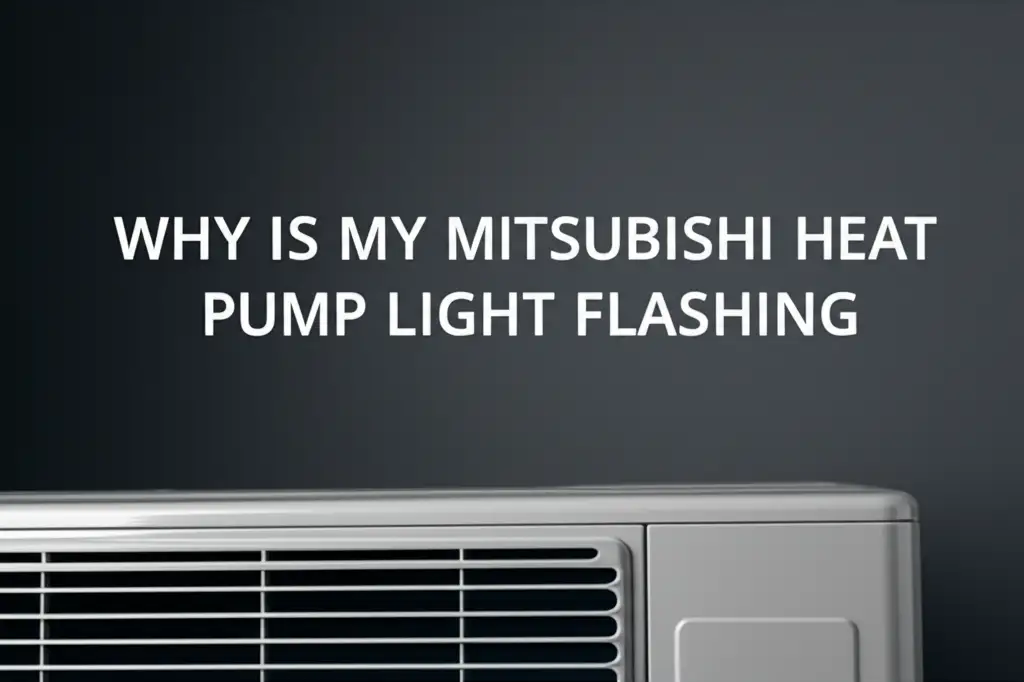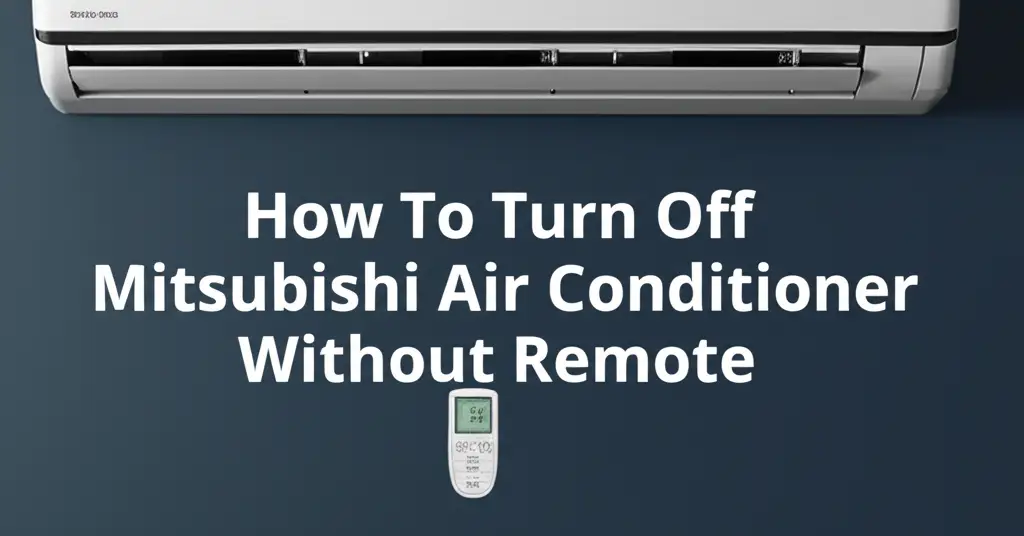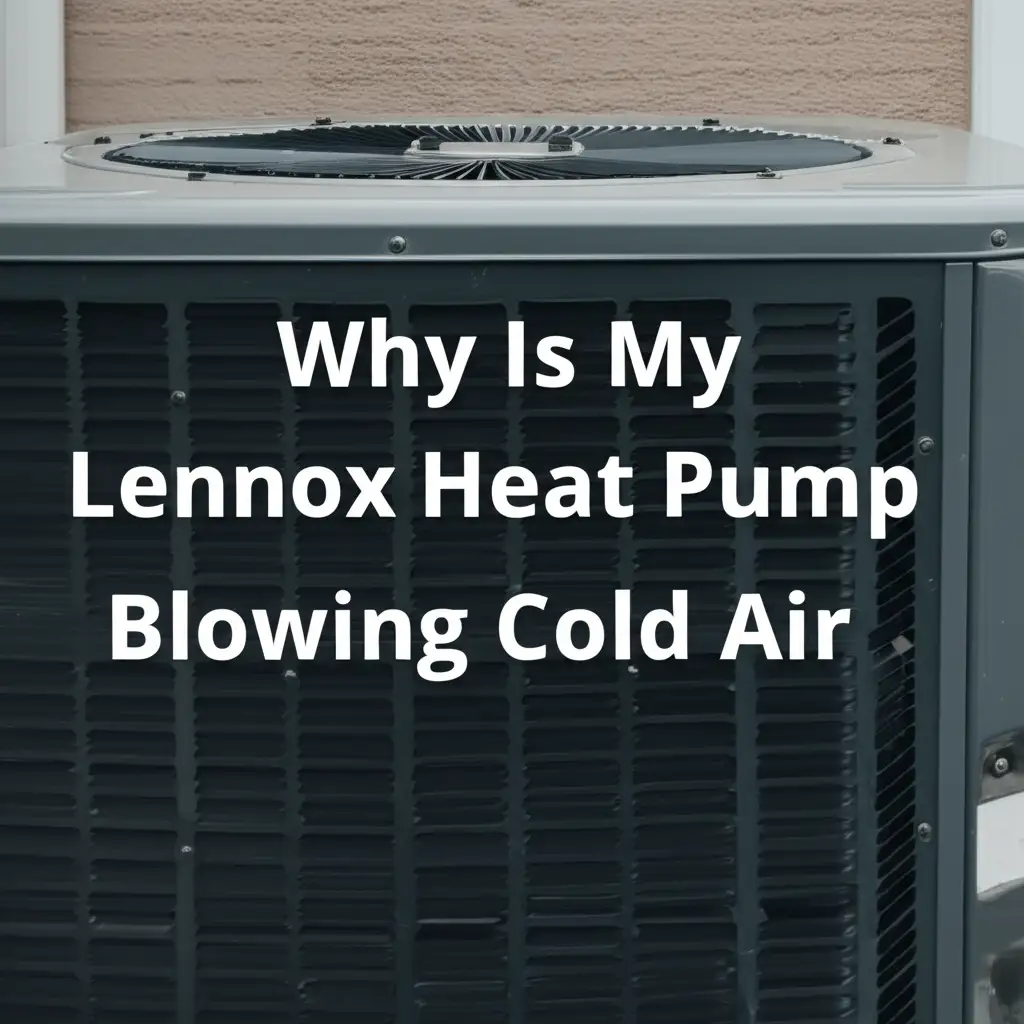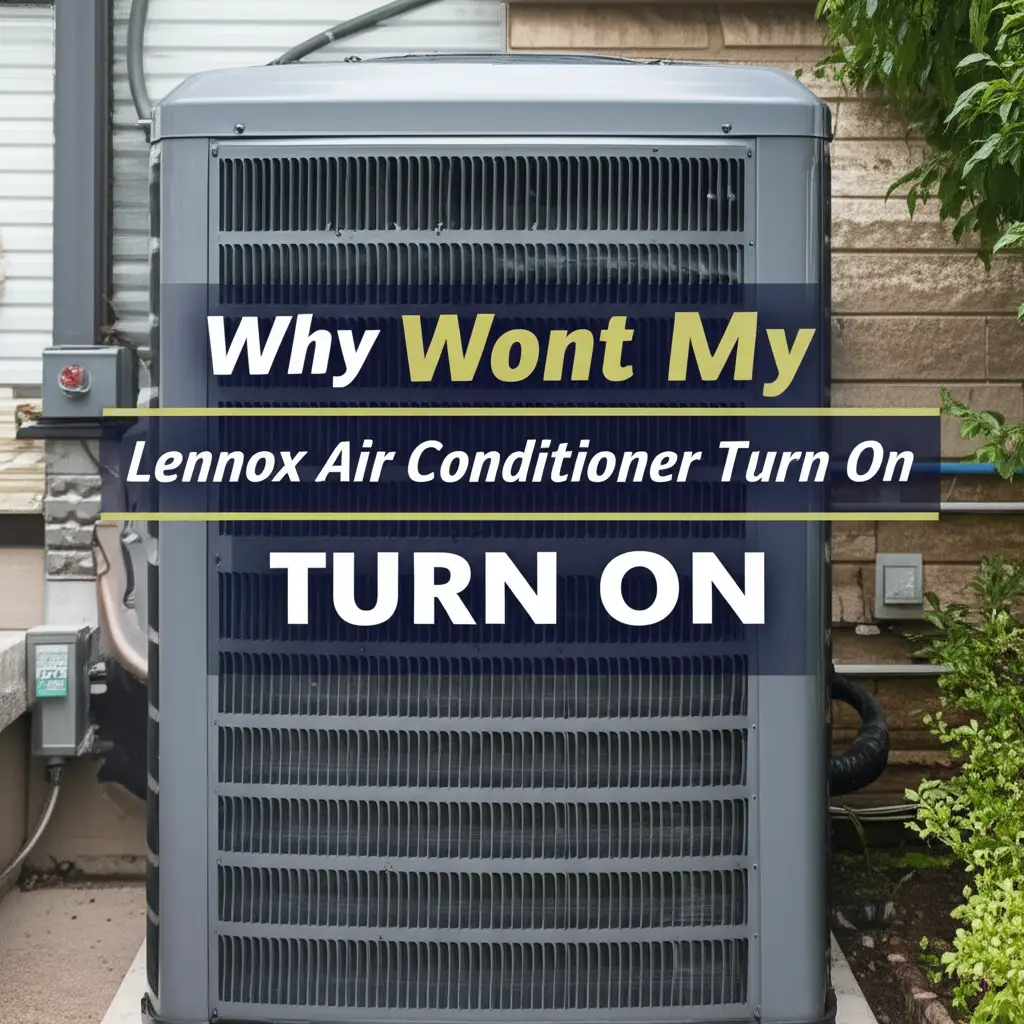· Todd Martin · HVAC Troubleshooting · 22 min read
Why Does My Heat Pump Keep Turning Off
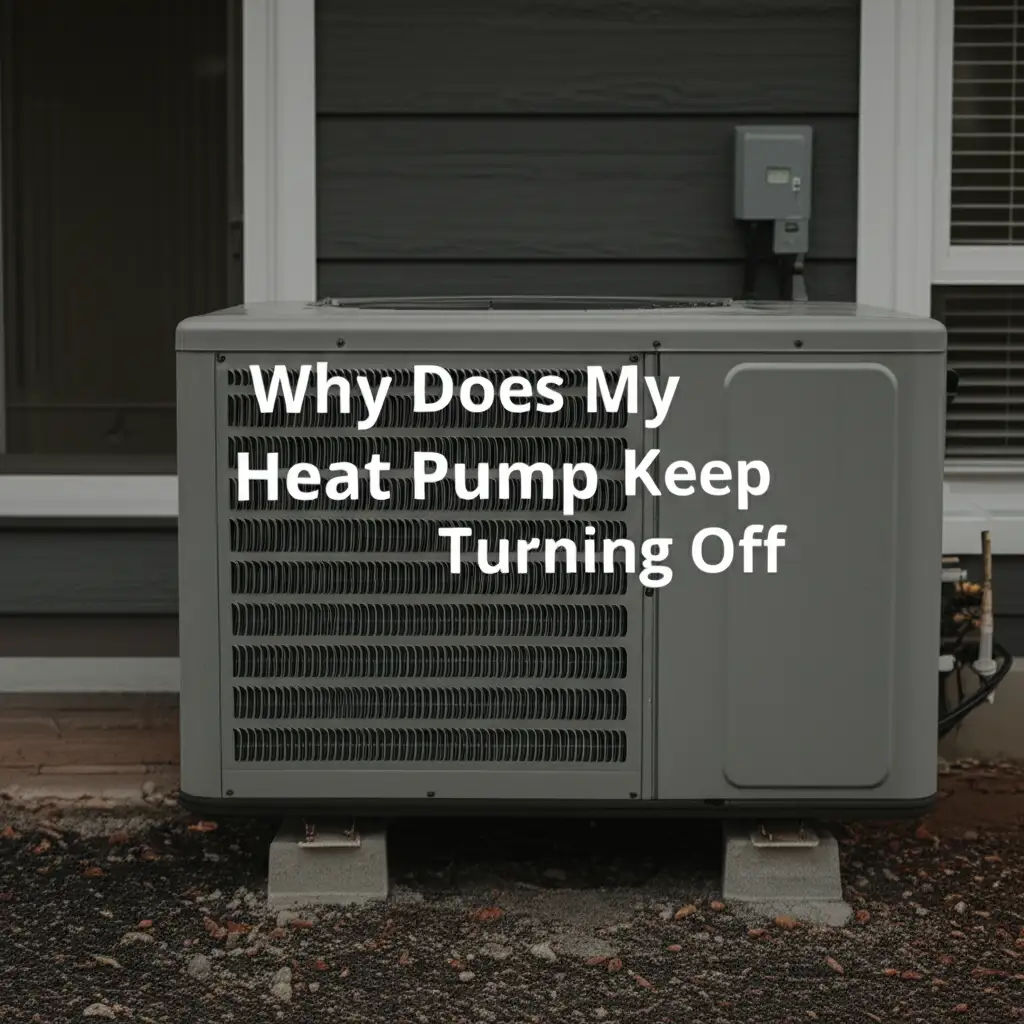
Understanding Why Your Heat Pump Keeps Turning Off
Imagine coming home to a cold house, even though your heat pump was running. Many homeowners experience frustration when their heat pump keeps turning off unexpectedly. This issue, often called short cycling, wastes energy and reduces comfort. You want your home to stay warm or cool without constant interruptions. This article explains common reasons why a heat pump keeps turning off. We will cover simple checks you can do yourself and indicate when professional help is necessary.
Takeaway
If your heat pump keeps turning off, check these key areas first:
- Airflow: Ensure filters are clean and vents are open. Restricted airflow is a common culprit.
- Thermostat: Verify settings are correct and the thermostat works properly.
- Refrigerant Levels: Low refrigerant causes the system to work harder and shut down.
- Electrical Issues: Loose wires or tripped breakers can stop operation.
- Drainage: Clogged condensate lines can trigger safety shutdowns.
- Professional Help: Call an HVAC technician for complex issues like refrigerant leaks or compressor problems.
Why does my heat pump keep turning off?
Your heat pump keeps turning off due to various issues, including restricted airflow from dirty filters, incorrect thermostat settings, low refrigerant levels, electrical faults, or clogged condensate drains. These problems cause the system to short cycle or shut down to prevent damage. Identifying the specific cause helps you restore consistent heating or cooling.
What is Short Cycling and Why it Matters
Short cycling happens when your heat pump turns on for a short time, then turns off, and then repeats this cycle frequently. This is not normal operation. A healthy heat pump runs for longer periods to maintain temperature efficiently. When your heat pump keeps turning off too soon, it indicates a problem.
This behavior significantly impacts your heat pump’s performance. It causes undue wear and tear on components, especially the compressor, which is the heart of your system. Constant starting and stopping shortens the lifespan of your unit. Moreover, short cycling leads to higher energy bills. The heat pump uses a lot of energy during startup. Frequent startups mean more energy consumption without effectively heating or cooling your space. Understanding short cycling is the first step in diagnosing why your heat pump keeps turning off.
A heat pump should cycle on and off based on the thermostat’s demand. It usually runs for 10 to 20 minutes per cycle, depending on the outside temperature and how well your home is insulated. If your system runs for only a few minutes before shutting down, you have a short cycling issue. This can be annoying because your home does not reach or maintain the desired temperature. We often see homeowners complain about uneven heating or cooling when their heat pump short cycles. Addressing this problem quickly saves you money and extends your heat pump’s life. If your heat pump keeps turning on and off quickly, you might find more detailed troubleshooting steps here: Why does heat pump keep turning on and off.
Common Causes of Heat Pump Shutdowns
Several issues can cause a heat pump to shut down unexpectedly. These range from simple, easily fixable problems to more complex mechanical failures. Identifying the specific reason your heat pump keeps turning off is key to resolving the issue. We often categorize these problems into electrical, mechanical, and maintenance-related. Sometimes, a heat pump might turn off because of a safety mechanism. This mechanism protects the unit from damage when it detects an issue. Understanding these common causes helps you troubleshoot effectively.
Airflow Restrictions
One of the most frequent reasons a heat pump keeps turning off is poor airflow. A heat pump relies on proper airflow to transfer heat efficiently. When airflow is restricted, the system struggles. It can overheat or freeze up, leading to a safety shutdown. I always tell people to check their air filter first. A dirty air filter is the number one cause of airflow problems. Over time, dust, pet hair, and debris build up on the filter. This blocks air from passing through freely. A clogged filter makes the fan work harder, reducing efficiency and potentially damaging the unit.
Beyond dirty filters, blocked vents or return air ducts also restrict airflow. Make sure furniture, curtains, or rugs do not cover supply registers or return grilles. Check for debris or toys in the ducts. Restricted airflow can cause the indoor coil to freeze in cooling mode or the outdoor coil to freeze in heating mode. When ice builds up, the system cannot function and will shut down. Regular filter changes and clear vents are simple steps that prevent many heat pump issues. Ensure you change your air filter every 1-3 months, especially if you have pets or allergies. Proper airflow ensures your heat pump operates as it should, preventing unnecessary shutdowns. You can also learn more about how the fan operates: Does heat pump fan run when heat is on.
Thermostat Malfunctions
The thermostat is the brain of your heat pump system. It sends commands to the unit to turn on and off based on your desired temperature. If your heat pump keeps turning off, the thermostat might be the problem. A common issue is incorrect settings. Make sure your thermostat is set to the correct mode (heat or cool) and the desired temperature. Sometimes, homeowners accidentally set it to “off” or “fan only” mode. I have seen this happen many times.
Beyond settings, the thermostat itself can malfunction. Batteries can die in wireless thermostats, leading to intermittent power. Dirty or loose wiring connections inside the thermostat can disrupt communication with the heat pump. Dust can accumulate on the internal sensors, causing inaccurate temperature readings. If the thermostat thinks the room is warmer or colder than it is, it might signal the heat pump to turn off prematurely. Try resetting your thermostat by turning it off, waiting a few minutes, and then turning it back on. If it uses batteries, replace them. If the issue persists, a faulty thermostat might need replacement. This is a relatively easy fix that can restore proper heat pump operation.
Electrical Issues
Electrical problems are a significant reason why a heat pump keeps turning off. A heat pump requires a consistent power supply. Issues with the electrical system can cause it to shut down abruptly. Start by checking your circuit breaker box. A tripped breaker means the heat pump drew too much power, or there was a short. Simply reset the breaker by flipping it completely off, then back on. If the breaker trips again immediately, a more serious electrical issue exists.
Loose wiring connections are another common electrical fault. Over time, vibrations can loosen wires within the heat pump unit, the outdoor condenser, or at the thermostat. These loose connections can interrupt power or signal flow, causing the system to stop. Damaged wiring can also lead to intermittent operation or complete shutdown. Fuses in the outdoor unit or the disconnect box near the unit can blow, cutting power. It is important to know that working with electrical components can be dangerous. If you suspect loose or damaged wiring, it is best to call a qualified HVAC technician. They have the tools and expertise to safely diagnose and repair electrical issues. Ensuring stable power is crucial for a heat pump’s reliable operation.
Refrigerant Leaks
Refrigerant is the substance that absorbs and releases heat in your heat pump system. It flows through the coils, transferring thermal energy. If your heat pump keeps turning off, low refrigerant levels can be a major cause. Refrigerant is contained in a closed loop, so a low level always indicates a leak. A leak means the heat pump cannot efficiently transfer heat. When the refrigerant level is too low, the system struggles. This can cause the compressor to overheat or the coils to freeze. Both scenarios trigger safety shutoffs.
You might notice ice on the outdoor unit’s coils, even in heating mode, or a hissing sound indicating a leak. Reduced cooling or heating performance is another sign. A heat pump with low refrigerant works harder to achieve the desired temperature. This increased strain on the system leads to short cycling and eventual shutdown. Do not try to add refrigerant yourself. This requires specific tools and training. Adding refrigerant without fixing the leak is a temporary solution and can damage the system further. A professional HVAC technician can locate and repair the leak, then properly recharge the system. This ensures your heat pump runs efficiently and reliably, preventing future shutdowns.
Advanced Problems Causing Heat Pump Shutdowns
Sometimes, the reasons why a heat pump keeps turning off are more complex. These issues often require professional diagnosis and repair. They involve critical components of the heat pump system. Ignoring these advanced problems can lead to costly damage or complete system failure. It is important to recognize when a problem is beyond simple troubleshooting.
Compressor Issues
The compressor is a vital part of your heat pump. It circulates refrigerant and increases its pressure, making heat transfer possible. If your heat pump keeps turning off, a failing compressor can be the culprit. A compressor facing issues might draw too much power, causing circuit breakers to trip. It might also overheat, leading to a thermal overload shutdown. You might hear strange noises, such as grinding or loud buzzing, coming from the outdoor unit. This indicates the compressor is struggling.
A compressor can fail due to various reasons, including electrical problems, insufficient lubrication, or age. Short cycling, which we discussed earlier, puts immense stress on the compressor. Each time the unit starts, the compressor experiences a surge of power. Frequent starts and stops wear it out faster. If your heat pump turns on for a brief moment and then immediately shuts down, it could be a sign of a bad compressor. Replacing a compressor is a significant repair, often one of the most expensive. It usually requires a professional HVAC technician. They have the specialized tools and knowledge to diagnose compressor health and perform replacement if needed.
Dirty Coils and Drainage Problems
Dirty coils significantly impact a heat pump’s efficiency and can cause it to shut down. The indoor evaporator coil and the outdoor condenser coil are essential for heat exchange. Over time, these coils collect dirt, dust, and debris. This layer of grime acts as an insulator, preventing efficient heat transfer. When coils are dirty, the heat pump struggles to absorb or release heat. This leads to overheating or freezing, triggering a safety shutdown. For example, a dirty outdoor coil in heating mode cannot absorb enough heat from the air. This forces the system to work harder, consuming more energy and potentially leading to short cycling.
Drainage problems are also a common reason why a heat pump keeps turning off, especially during cooling cycles. As the indoor coil cools, it removes moisture from the air, creating condensation. This water collects in a condensate pan and drains away through a condensate line. If this line becomes clogged with algae or debris, the water cannot drain. The pan will overflow. Many heat pumps have a float switch in the condensate pan. When the water level rises too high, this switch activates, turning off the heat pump to prevent water damage. You might see water pooling around the indoor unit. Regularly cleaning your coils and ensuring the condensate line is clear helps prevent these issues. You can often clear a minor condensate line clog with a wet/dry vacuum. However, for persistent issues or inaccessible clogs, professional help is best.
Sensor Malfunctions
Heat pumps rely on various sensors to monitor conditions and operate correctly. These sensors measure temperature, pressure, and airflow. If your heat pump keeps turning off, a malfunctioning sensor could be providing incorrect readings. This causes the system’s control board to make wrong decisions, leading to premature shutdowns. For example, a faulty temperature sensor might tell the heat pump that the desired temperature has been reached, even if it has not. This prompts the unit to turn off too soon.
Pressure sensors monitor refrigerant levels and system pressure. If a pressure sensor fails, it might detect abnormal pressure, even when levels are fine. This can trigger a safety shutdown to prevent damage. Flame sensors in electric heat pumps (if applicable to auxiliary heat) or defrost sensors on outdoor units can also fail. A defrost sensor, for instance, tells the outdoor unit when to go into defrost mode. If it malfunctions, the coil might ice up excessively, causing the unit to stop. Diagnosing a faulty sensor often requires specialized equipment. A professional HVAC technician can test sensors and replace them if needed. Replacing a sensor is usually less expensive than replacing major components. However, accurate diagnosis is crucial.
When to Call a Professional HVAC Technician
While some heat pump issues can be resolved with simple troubleshooting, many situations require the expertise of a professional HVAC technician. Knowing when to call for help can prevent further damage to your system and ensure your safety. If your heat pump keeps turning off, and you have checked the basic items, it is likely time to involve an expert.
Signs you need a professional:
- Persistent Short Cycling: If your heat pump continues to turn on and off frequently after you have checked the filter and thermostat, a deeper issue is present.
- Refrigerant Leaks: Low refrigerant means there is a leak. Refrigerant is a hazardous chemical. Handling it requires specialized training and tools. A technician can locate and repair the leak, then properly recharge the system.
- Electrical Problems: If your circuit breaker trips repeatedly, or you notice burnt smells or sparking, do not attempt to fix it yourself. Electrical issues are dangerous.
- Strange Noises or Smells: Grinding, buzzing, banging, or burning smells coming from your heat pump indicate serious mechanical or electrical problems.
- No Heat or Cool Air: If the heat pump runs but does not produce effective heating or cooling, it might be a compressor issue or a significant refrigerant problem.
- Ice on Coils (after basic checks): While some ice is normal during defrost cycles, persistent ice build-up, especially on the indoor coil, signals a serious problem like low refrigerant or airflow issues.
- Water Leaks (beyond condensate pan overflow): Water pooling around your indoor unit not related to a simple condensate line clog could indicate a cracked drain pan or other internal leaks.
A certified HVAC technician has the diagnostic tools and experience to pinpoint the exact cause of why your heat pump keeps turning off. They can safely perform repairs that are beyond a homeowner’s capability. Investing in professional service ensures your heat pump operates safely and efficiently. It also protects your long-term investment in your home comfort system.
Preventative Maintenance for Your Heat Pump
Regular preventative maintenance is crucial for keeping your heat pump running smoothly and preventing it from turning off unexpectedly. Just like a car needs regular oil changes, your heat pump benefits from routine check-ups. A well-maintained heat pump is more efficient, lasts longer, and has fewer breakdowns. I always emphasize the importance of maintenance to homeowners. It truly is the best way to avoid the frustration of a heat pump that keeps turning off.
Regular Filter Changes
This is the simplest yet most important maintenance task you can do. A clean air filter ensures optimal airflow, preventing your heat pump from overworking and shutting down due to restriction. I recommend checking your filter monthly and replacing it every 1 to 3 months. If you have pets or allergies, or during peak heating/cooling seasons, more frequent changes might be necessary. This simple step protects your system’s efficiency and longevity.
Keeping the Outdoor Unit Clear
The outdoor unit (condenser) needs good airflow to operate effectively. Clear away any leaves, grass clippings, dirt, or debris that accumulate around the unit. Trim back shrubs or bushes at least two feet from all sides of the unit. This allows for proper air intake and exhaust. Blocked outdoor coils prevent efficient heat exchange, forcing the heat pump to work harder and potentially leading to shutdowns.
Clearing the Condensate Drain Line
As mentioned, a clogged condensate drain line can cause your heat pump to shut off. Periodically check the condensate pan for standing water and the drain line for clogs. You can flush the line with a mixture of bleach and water (1 cup bleach to 1 gallon water) to prevent algae growth. This simple task can prevent water damage and unexpected shutdowns.
Scheduling Annual Professional Inspections
Even with your diligent efforts, an annual professional inspection is invaluable. A qualified HVAC technician can perform a thorough check of your entire system. They will clean coils, inspect electrical connections, check refrigerant levels, lubricate moving parts, and test all components. They can spot potential issues before they become major problems. This proactive approach saves you money on emergency repairs and extends the life of your heat pump. Professional maintenance ensures your heat pump remains reliable and efficient, stopping it from frequently turning off. Knowing how long your heat pump should last might also inform your maintenance schedule: How long does an air source heat pump last.
Understanding Normal Heat Pump Operation
It is helpful to understand how a heat pump normally operates. This helps you distinguish between a problem and typical system behavior. Many homeowners worry when their heat pump appears to run continuously or cycle in ways they do not expect. Knowing what is normal can save you unnecessary stress and service calls. A heat pump’s operation differs from a traditional furnace or air conditioner in some ways.
Defrost Cycle
Heat pumps have a defrost cycle, especially in colder climates. When the outdoor temperature drops, moisture in the air can freeze on the outdoor coil. This ice reduces the unit’s ability to absorb heat. The heat pump will periodically enter a defrost mode to melt this ice. During defrost, the unit reverses its refrigerant flow, sending warm refrigerant to the outdoor coil. The outdoor fan may stop, and you might see steam rising from the unit. The auxiliary heat might also come on during this time to maintain indoor comfort. This cycle typically lasts 5-15 minutes. It is perfectly normal, and the unit will resume regular heating afterward. It is designed to prevent your heat pump from turning off due to ice buildup. You can learn more about auxiliary heat operation here: Does heat pump shut off when auxiliary heat is on.
Longer Run Times
Heat pumps often run for longer periods than furnaces. They transfer heat rather than generating it directly. This means they heat your home more gradually. A heat pump might run for 30 minutes or more per cycle, especially on colder days. This is normal and a sign of efficient operation. If your heat pump seems to run almost constantly on very cold days, it might not necessarily be an issue. It could just be working hard to maintain the set temperature. Conversely, if your heat pump seems to run all the time, that also has specific troubleshooting steps: Why does heat pump run all the time.
Auxiliary Heat Activation
In very cold weather, your heat pump might need help to keep your home warm. This is where auxiliary or “emergency” heat comes in. Auxiliary heat is typically electric resistance heating elements. They supplement the heat pump’s output. When activated, you might notice your heat pump operating differently, or it might cycle off and on as the auxiliary heat takes over. Your thermostat might indicate when auxiliary heat is active. This is a normal function designed to ensure your home stays comfortable during extreme cold. Understanding these normal behaviors helps you determine if your heat pump is truly malfunctioning or just operating as designed.
Troubleshooting Steps You Can Take
When your heat pump keeps turning off, there are several troubleshooting steps you can take before calling a professional. These steps can help identify simple issues and potentially save you a service call. Always prioritize safety. Turn off power to the heat pump at the thermostat and the circuit breaker before performing any physical checks.
Check the Thermostat Settings:
- Is it on “Heat” or “Cool” mode? Ensure it is not set to “Off” or “Fan Only.”
- Is the temperature setting correct? Set it a few degrees higher than the current room temperature in heating mode, or lower in cooling mode, to trigger operation.
- Are the batteries dead? Replace them if your thermostat uses batteries.
- Try a reset. Many thermostats have a reset button or can be reset by removing batteries or turning off the power at the breaker for a few minutes.
Inspect the Air Filter:
- Is it dirty? Pull out the air filter from your indoor unit (furnace/air handler). If it looks clogged with dust and debris, replace it with a clean one. A dirty filter severely restricts airflow.
- Ensure it is installed correctly. The arrows on the filter should point in the direction of airflow towards the unit.
Check for Blocked Vents or Registers:
- Are supply vents open and unobstructed? Make sure furniture, rugs, or drapes are not blocking any supply registers in your rooms.
- Are return air grilles clear? Ensure nothing is blocking the large return air grilles, usually located on a wall or ceiling. Blocked returns starve the system of air.
Examine the Outdoor Unit:
- Is it clean? Clear away leaves, twigs, grass, or other debris accumulated around the outdoor condenser unit. Maintain at least two feet of clear space around all sides.
- Is there ice build-up? A light layer of frost is normal during cold weather, which should be handled by the defrost cycle. Excessive ice that does not melt away, even after an hour or two, indicates a problem like low refrigerant or a faulty defrost sensor. Do not chip the ice. You can try running the system in fan-only mode or turning it off to allow it to melt naturally.
Check the Circuit Breaker:
- Has it tripped? Go to your home’s electrical panel. Look for a breaker labeled for your heat pump or “HVAC.” If it is in the “off” or middle position, flip it completely to “off” and then firmly back to “on.”
- Does it trip again immediately? If so, there is a serious electrical issue, and you should call a professional.
Inspect the Condensate Drain Line (during cooling season or high humidity):
- Is the condensate pan overflowing? Locate the shallow pan underneath your indoor coil. If it is full of water, the drain line is likely clogged.
- Clear the clog. You can often clear a simple clog by using a wet/dry vacuum at the end of the drain line (usually outside). You can also try carefully flushing with a dilute bleach solution.
By systematically going through these steps, you can often identify and resolve minor issues that cause your heat pump to turn off. If these steps do not fix the problem, or if you are uncomfortable performing them, it is always best to call a professional HVAC technician.
FAQ Section
Q1: Why does my heat pump turn on and off frequently, also known as short cycling?
A1: Short cycling means your heat pump runs for short bursts, then stops. Common reasons include a dirty air filter, incorrect thermostat settings, oversized unit, or low refrigerant. It puts extra stress on the system and increases energy use. Check your filter and thermostat first.
Q2: Can a dirty air filter really make my heat pump keep turning off?
A2: Yes, absolutely. A dirty air filter restricts airflow significantly. This forces your heat pump to work harder, which can lead to overheating or freezing of coils. To protect itself, the heat pump’s safety mechanisms will often shut the unit down prematurely.
Q3: What should I do if my heat pump’s circuit breaker keeps tripping?
A3: A repeatedly tripping circuit breaker indicates a serious electrical problem. It could be a short circuit, an overloaded component, or an issue with the wiring. Do not keep resetting it without finding the cause. Turn off the system and call a qualified HVAC technician immediately to diagnose and fix the electrical issue safely.
Q4: Is it normal for my outdoor heat pump unit to have ice on it?
A4: A light layer of frost on the outdoor unit is normal during cold weather, as the unit extracts heat from the air. Your heat pump has a defrost cycle to melt this frost periodically. Excessive ice, or ice that persists for hours, indicates a problem like low refrigerant, a faulty defrost sensor, or an airflow issue.
Q5: How often should I perform maintenance to prevent my heat pump from turning off?
A5: Regular maintenance is key. You should check and replace your air filter every 1-3 months. Clear debris from around the outdoor unit regularly. Schedule a professional HVAC inspection and tune-up annually. This proactive approach helps prevent many common issues that cause heat pumps to shut down.
Q6: Can a clogged drain line cause my heat pump to shut down?
A6: Yes, a clogged condensate drain line can cause your heat pump to shut down, especially during cooling or high-humidity operation. The indoor coil produces condensation, which collects in a pan. If the drain line is blocked, the pan overflows, activating a safety switch that turns off the unit to prevent water damage.
Conclusion
When your heat pump keeps turning off, it is more than just an inconvenience; it signals an underlying issue that needs attention. We have explored the common reasons behind this frustrating problem, from simple fixes like dirty air filters and incorrect thermostat settings to more complex issues like refrigerant leaks and compressor problems. Addressing these issues promptly not only restores your home comfort but also protects your system from further damage and reduces your energy bills.
I always advise homeowners to start with the easiest checks, such as inspecting the air filter and thermostat settings. These simple steps can often resolve the problem quickly. However, remember that some issues, especially those involving refrigerant, complex electrical components, or significant mechanical failures, are best left to a certified HVAC professional. Regular preventative maintenance, including annual tune-ups, is your best defense against unexpected shutdowns. By understanding why your heat pump keeps turning off and taking proactive steps, you ensure your home stays comfortable and your heat pump operates efficiently for years to come. Do not hesitate to contact a professional if the problem persists or seems too complex to handle on your own.
- heat pump problems
- HVAC repair
- heat pump short cycling
- home comfort
- energy efficiency


